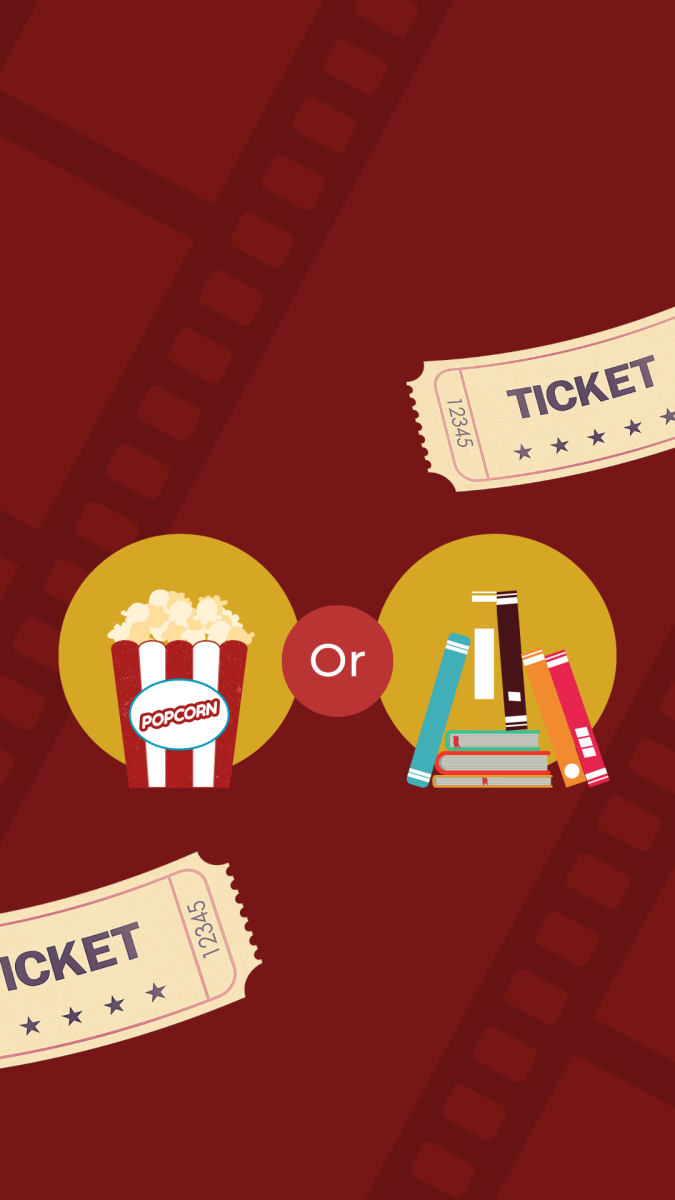Imagine running through a forest with your heart beating a million miles per minute as excitement and anticipation surge through your body. Or perhaps you are walking down a dark and damp corridor at night, being careful not to make the slightest sound, as someone or something could hear you.
The thrill of reading a descriptive setting that just gets your mind racing while you are bundled warm and cozy, nestled in your favorite reading spot, is a feeling most book enthusiasts crave the most.
Although, what about when your favorite books come to life? We have seen it over and over again, where classic literature is turned into a real-life film adaptation, like with “Little Women” or with a series, like “Harry Potter.” We love these movies. They are excellent, and I personally enjoy watching them again and again. However, is it better to read the book and then watch the movie, or is it preferred to watch the movie and then read the original novel?
I personally think that the book is almost always better than the movie, so it should be read first rather than beginning with a film adaptation.
“I would prefer to read the book first because the book gives you more imagination and creativity with the characters,” said Jack Ulrich, a sophomore business major at GC. “Like with “The Hunger Games,” if I had watched the movie first, every time I read about Katniss, I would just think of Jennifer Lawrence, but with reading first, I have my own idea of the character.”
I am a huge movie fan. Do not get me wrong. I am not saying a movie adaptation is always bad or a poor depiction; I am saying that if there is a choice between reading the book first or watching the movie adaptation first, book first is always the better option. I love “The Hunger Games.” I read the books and then watched the films and absolutely loved them both. I think the movies did such a great job of portraying the books. However, as with any film adaptation, they are not entirely accurate to the initial books. There are things that are left out or things that maybe someone who read the book first may have imagined differently than the way the film conveyed it.
As an example, in the classic novel “The Great Gatsby,” the book is told from the perspective of Nick Carraway, while the movie focuses heavily on Gatsby himself. I love the movie as well as the book, but the movie portrays a major difference in character perspective, and that changes so much about the story.
“I will always choose the book first,” said Gina Towner, a French lecturer at GC and booklover. “Books always have more detail because movies have a time limit, so I am always left feeling robbed after watching a film when I read the book first.”
This is entirely true. Films only have so much time to tell the story, and sometimes, they leave things out that contribute something important to the plot. We get so much more insight into the story from the book. A film will usually only last around two hours, while a book can have hundreds of pages of description and go into immense detail. In books, there is also much more character development that can add dimension, such as major detailing to emotions and thoughts that an actor or actress can only convey so much.
According to Stephen Iervolino with CBS News, in a survey of 2,000 American book readers, it was revealed that 67% preferred the book version to the movie adaptation.
Books deliver so much more than what movies can. Compared to the movie adaptation, the novel is always the better choice. It allows us to develop our own setting, think creatively about what is happening and learn morals or lessons that a movie cannot convey as well as the written word.


